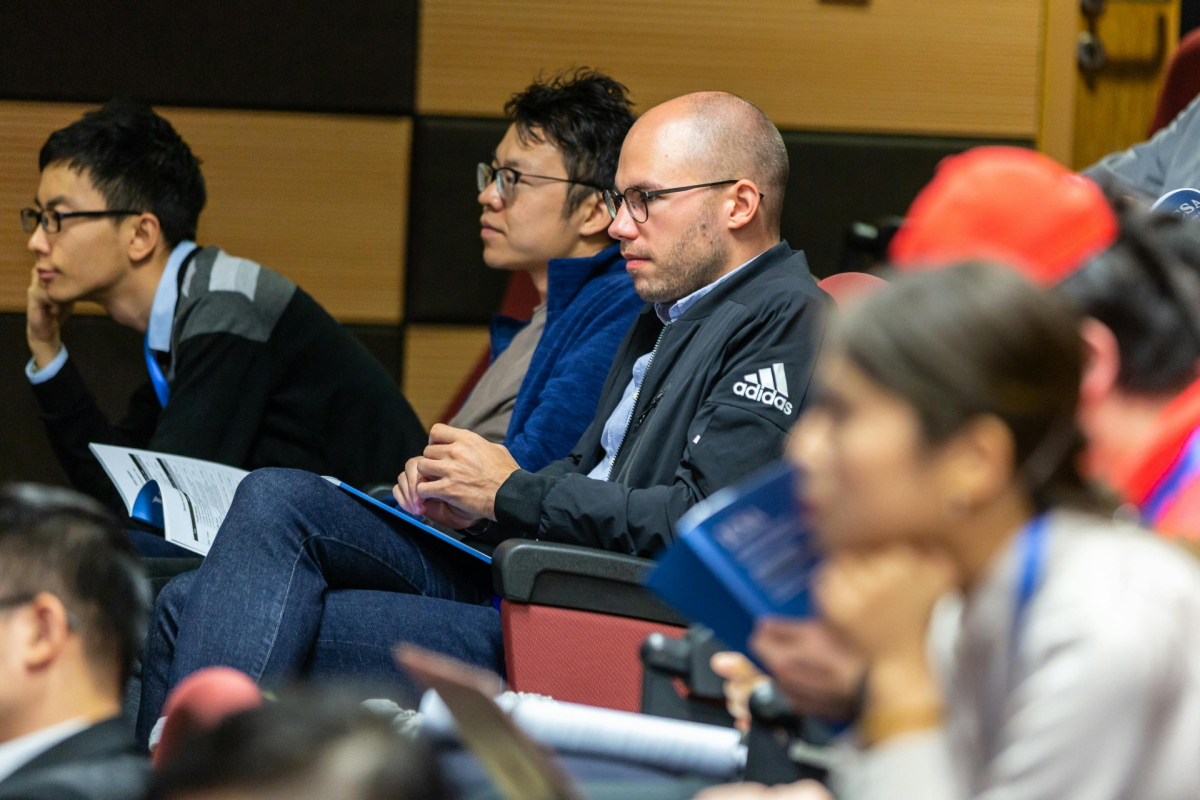How to Work Smarter, not Harder as a Student
Are you tired of feeling overwhelmed and stressed out by your workload as a student, not motivated to study anymore? We explore the benefits of working smarter, not harder, allowing you to achieve more with less effort.

By identifying your goals, mastering time management techniques, and developing good study habits, you can save time, reduce stress, and improve overall productivity. Embrace a more innovative approach to maximize your academic journey while maintaining a healthy balance.
Work Smarter, Not Harder
It can significantly impact your productivity, efficiency, and overall well-being. Individuals can achieve more in less time by focusing on efficiency and effectiveness.
For instance, prioritizing tasks based on importance and urgency, allocating specific time blocks for concentrated work, and minimizing distractions all enhance performance. Managing your energy effectively, such as taking breaks, getting enough sleep, and engaging in physical activity, is equally important.
“I learned the value of hard work by working hard”’ – Margaret Mead
When you work smarter, you are not just completing tasks but investing your time and efforts wisely to yield better results in both task completion and overall well-being.
Save Time and Energy
By optimizing your approach to tasks and time management, you can save valuable time and conserve your energy for tasks that truly matter.
One highly effective strategy for conserving energy and enhancing time management is incorporating deep breathing exercises into your daily routine. Taking a few moments to practice deep breathing can help reduce stress, increase focus, and recharge your mind for increased productivity. A consistent self-care routine can also significantly maintain energy levels and improve efficiency.
To streamline your tasks, consider creating a detailed to-do list daily, prioritizing the most critical tasks, and breaking down larger projects into smaller, manageable steps. Time blocking can also be a helpful technique, where you allocate specific time slots for different activities, ensuring focused attention and avoiding multitasking, which can often deplete energy and prolong tasks.
Implementing these strategies can lead to a more organized workflow, reducing stress and enhancing time management skills.
Reduce Stress and Burnout
Implementing strategies to reduce stress and prevent burnout is essential for maintaining a healthy work-life balance and sustaining long-term productivity.
Taking regular breaks throughout the workday can significantly improve your focus and creativity. By stepping away from your tasks, you allow your mind to rest and recharge, enhancing problem-solving abilities and overall performance.
Setting boundaries, such as establishing specific work hours and designated break times, helps minimize distractions and maintain a clear separation between work and personal life. This practice can prevent work-related stress from seeping into your time, promoting a healthier work-life balance.
Improve Efficiency and Productivity
Enhancing your efficiency and productivity involves effective prioritization, utilizing automation tools, meeting deadlines, and leveraging productivity-enhancing technologies.
A critical aspect of enhancing efficiency is prioritizing tasks based on urgency and importance. Using tools like Asana or Trello, you can create task lists, set deadlines, and assign tasks to team members, ensuring clarity and accountability. Automation tools like Zapier can help streamline repetitive tasks by connecting different apps and automating workflows.
“If you cannot do great things, do small things in a great way.” – Napoleon Hill
Meeting deadlines is crucial for project success, and tools like Google Calendar or Todoist can help track deadlines and manage schedules effectively.
Identifying Your Goals and Priorities
Clarifying your goals and setting clear priorities are fundamental steps towards achieving success in your tasks and optimizing your time effectively.
Practical communication skills are vital, allowing you to clearly articulate your goals and priorities to team members or colleagues. Conveying your objectives helps ensure everyone is on the same page and working towards the same outcomes.
Maintaining a structured to-do list enhances your ability to stay organized and focused on essential daily tasks. By visually seeing your tasks laid out, you can prioritize them based on importance and urgency, helping you tackle them efficiently and avoid feeling overwhelmed by a mountain of work.
Set Realistic and Specific Goals
Establishing realistic and specific goals that align with your passion, leveraging networking opportunities, taking detailed notes, and using a planner can significantly boost your productivity and success.
Check out the new Motivation Mentor AI Coach
app from Motivation Pay… It’s FREE!
When you set goals that are both achievable and closely tied to what motivates you, you increase your chances of staying focused and driven.
Networking opens doors for growth and exposes you to new ideas and perspectives that can inspire innovation.
Keeping detailed notes allows you to track progress, learn from past experiences, and adapt your strategies accordingly.
By incorporating a planner into your routine, you can allocate time efficiently, prioritize tasks, and maintain a structured approach to achieving your objectives.
Prioritize Tasks and Assignments
Prioritizing tasks and assignments based on urgency and importance, adopting task batching techniques, maintaining a balanced diet for sustained energy levels, and staying motivated are crucial to optimizing productivity.
Task batching involves grouping similar tasks to improve focus and efficiency, minimizing mental switches between different types of work. By focusing on a task at a time, you can enter a deep concentration, leading to higher-quality output. Ensuring a steady intake of nutrient-dense foods such as fruits, vegetables, whole grains, and lean proteins can provide the sustained energy needed for long work sessions.

To stay motivated, setting clear goals, breaking tasks into manageable chunks, and rewarding yourself for completing milestones can boost your morale and drive. Integrating SEO principles into your work strategy can help you prioritize tasks based on their impact and relevance, ensuring you allocate your time and effort to the most valuable activities.
Effective Time Management Techniques
Mastering effective time management techniques like time blocking to minimize distractions and using tools such as Google Calendar can revolutionize how you approach your daily tasks and responsibilities, providing self-motivation tips for students.
By allocating specific time blocks for different activities, you create a structured approach to your day, allowing you to focus solely on the task at hand without the interference of multitasking or interruptions. This method encourages deep work, enabling you to delve deeply into a project or task without constantly shifting your attention.
Google Calendar’s user-friendly interface makes creating color-coded blocks for various tasks easy, visually representing your schedule and serving as a self-motivation tool for students to stay organized and productive.
“Working hard is very important. You are not going to get anywhere without working extremely hard.” – George Lucas
Create a Schedule or To-Do List
Utilizing AI-driven scheduling tools, incorporating insights from the Big 5 Personality Test to tailor your approach, optimizing your workflow like a seasoned reporter, and leveraging the capabilities of both Mac and PC systems can redefine your scheduling and task management processes.
By leveraging the capabilities of AI-driven scheduling tools, you can automate repetitive tasks, minimize errors, and save valuable time. These tools can analyze data, predict trends, and suggest optimal scheduling options, allowing you to prioritize tasks efficiently. When personalized with Big 5 Personality Test insights, you can tailor your task management strategies to align with your strengths and preferences, enhancing productivity and satisfaction.
Adopting journalistic approaches in workflow management can bring clarity, organization, and focus to your daily routines. Embracing the principles of researching, planning, and executing tasks methodically can streamline processes, improve communication, and foster innovation within your team.
Leveraging the strengths of Mac and PC systems offers versatility and compatibility, allowing you to choose the best tools for different tasks. This dual-system approach enables seamless collaboration, access to a broader range of software, and increased efficiency in handling diverse projects.
Use Time-Blocking Method
Implementing the time-blocking method, enhancing your typing skills with platforms like Typing Academy and Ratatype, and leveraging communication tools like Slack and task management platforms like Asana are instrumental in optimizing time allocation and task execution.
Time-blocking involves breaking your day into chunks dedicated to specific tasks or activities. You can enhance productivity and efficiency by allocating focused time blocks for essential tasks.
Improving your typing skills through online platforms boosts your speed and reduces the time spent on typing, allowing you to complete tasks faster. Communication tools like Slack facilitate seamless collaboration with team members, ensuring straightforward and fast exchange of information.
Task management platforms such as Asana help organize, assign, and track tasks, keeping your workflow streamlined and efficient. Utilizing these tools effectively allows you to prioritize tasks, set achievable goals, and meet deadlines efficiently.
The combination of time-blocking, enhanced typing skills, communication tools, and task management platforms results in a well-structured day that maximizes productivity and task completion.
Avoid Multitasking
Steering clear of multitasking, prioritizing self-care routines, and setting clear boundaries, especially in virtual environments like Zoom, can enhance your focus, productivity, and overall well-being.
When individuals attempt to juggle multiple tasks simultaneously, the quality of their work often needs to improve as attention becomes divided. Research suggests that multitasking can reduce productivity by up to 40% and impair cognitive functions such as memory retention and problem-solving abilities.
By focusing on one task at a time, you can maintain a high concentration level and produce better results. Incorporating self-care practices into your routine, such as regular breaks, exercise, and mindfulness techniques, can help combat the negative impacts of constant task-switching.
Utilizing Resources and Tools
Leveraging resources and tools like the Passion Planner for organizational efficiency, networking to expand opportunities, and prioritizing quality sleep for enhanced cognitive function are vital components for maximizing productivity and achieving your goals.
Tools like the Passion Planner provide a structured approach to time management, goal-setting, and reflection. This tool allows individuals to break down their tasks into manageable steps, set priorities, and track progress efficiently.
Networking plays a significant role in professional growth by opening doors to new connections, collaborations, and career advancement opportunities. Engaging with a diverse network can provide valuable insights, mentorship, and access to resources that propel your career forward.
Quality sleep is crucial for overall well-being and cognitive function. Adequate rest enhances concentration, memory retention, and problem-solving abilities, improving productivity and decision-making skills.
Use Technology to Your Advantage
Leveraging digital tools tailored to your needs as a photographer, setting clear boundaries around project timelines, and utilizing specialized productivity tools can amplify your efficiency and output in your creative endeavors.
By leveraging the capabilities of technology, photographers can streamline their workflow from start to finish. With the abundance of software and apps available, photographers can automate repetitive tasks, such as file organization and editing, saving them precious time.

Setting realistic deadlines and prioritizing tasks is crucial for effective time management, ensuring projects are completed on schedule without unnecessary stress.
Incorporating productivity tools customized for photography into your workflow, such as editing software with batch processing capabilities or project management platforms, can significantly boost productivity and overall output. Adapting these strategies to your unique workflow can revolutionize your work, improving creativity and client satisfaction.
Seek Help from Professors and Peers
Leveraging your communication skills to seek guidance from professors and engage with peers, networking to expand your knowledge base, automating routine tasks to save time, and incorporating SEO strategies can propel your progress and success in academic and professional pursuits.
Effective communication is crucial in forming connections with mentors and collaborating effectively with peers. Through clear and concise interactions, you can gain valuable insights and support from experienced field professionals.
Networking opens opportunities to learn from diverse sources, widening your perspective and exposing you to new ideas and approaches. Building a strong network allows you to tap into a wealth of knowledge and experience beyond your immediate circles.
Task automation streamlines your workflow, enhancing efficiency by reducing manual labor and minimizing errors. By harnessing technology to handle repetitive tasks, you free up time for more strategic or creative pursuits, ultimately boosting productivity.
“The secret of success is learning how to use the principle of effort to build skill.” – Michael J. Gelb
Integrating SEO techniques into your content and online presence enhances your visibility and impact. Optimizing your digital footprint helps you reach a larger audience, attract relevant opportunities, and establish a solid online reputation.
Developing Good Study Habits
Establishing good study habits through task batching for focused learning, incorporating regular breaks for mental rejuvenation, maintaining a balanced diet to sustain energy levels, and staying motivated are critical pillars of academic excellence.
Task batching involves grouping similar tasks during study sessions to optimize efficiency and effectiveness. Focusing on one task at a time allows students to delve deeper into the subject matter, leading to better retention and understanding. Incorporating breaks is crucial as it will enable the brain to recharge, enhancing cognitive function and overall productivity.
Maintaining healthy eating habits, such as consuming nutrient-rich foods and staying hydrated, plays a vital role in sustaining energy levels for sustained concentration and academic performance. To maintain motivation, setting specific goals, creating a study schedule, and rewarding oneself for accomplishments can help students stay driven and engaged throughout their learning journey.
Find a Suitable Study Environment
Creating an efficient study environment that aligns with your passions, setting clear boundaries to minimize distractions, and fostering motivation through personalized strategies can significantly enhance learning efficiency and retention.

An optimized study environment is crucial for optimizing your focus and productivity. By identifying what inspires and drives you, whether it’s a tranquil workspace or vibrant surroundings, you can tailor your study area to suit your needs best. Setting boundaries, such as establishing specific study hours and limiting interruptions, can help create a conducive space for deep concentration.
Incorporating motivational techniques tailored to your preferences, such as setting achievable goals or rewarding yourself after completing tasks, can keep you engaged and determined throughout your learning journey.
Take Breaks and Practice Self-Care
Incorporating strategic breaks, prioritizing self-care practices, honing time management skills to meet deadlines, and minimizing distractions while networking for collaborative opportunities can elevate academic performance and personal well-being.
Strategic breaks play a crucial role in enhancing cognitive function by allowing your brain to recharge and process information more effectively. When you return to your tasks, engaging in short walks, stretching exercises, or mindfulness during breaks can improve focus and productivity.
Maintaining self-care routines such as proper nutrition, regular exercise, and sufficient sleep is fundamental to sustaining mental and physical health. Prioritizing self-care boosts your overall well-being and enhances your resilience to academic stress and challenges.
Creating a structured schedule, setting realistic goals, and utilizing productivity tools are essential to effectively managing time and meeting academic deadlines. Implementing techniques like the Pomodoro method, task prioritization, and avoiding multitasking can help you optimize your study time and achieve academic success.
“Work smarter, not harder. Better to master one skill than study a dozen ideas.” – Jeff Olson
Networking opens doors to new opportunities and fosters professional growth and collaboration. Building a solid network of peers, mentors, and industry professionals can provide valuable insights, support, and potential career prospects.
By actively engaging in networking events, workshops, and online communities, you can broaden your academic and professional horizons, leading to a more enriching educational experience and enhanced career prospects.
When are You Going to Start
Mastering the balance between productivity, effectiveness, efficient time management, and strategic networking can transform your academic and professional pursuits into rewarding and successful endeavors.
By honing productivity skills, individuals can accomplish tasks efficiently and achieve their goals effectively, get inspiration from motivational quotes to study hard. Coupled with strategic networking, one can broaden their horizons, connect with field experts, and seize previously overlooked opportunities.
Embracing effective time management ensures that every minute is utilized wisely, maximizing productivity output. Investing time building solid relationships and connections can open doors to collaborations, mentorship, and valuable insights.







